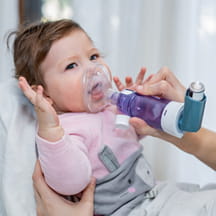In September 2023, New York passed a bipartisan bill to protect medically fragile children. Blythedale Children’s President and CEO Larry Levine was the originator of the legislative language and advocacy for the bill. For three years, he and his team lobbied for the bill, which passed almost unanimously. “This is a landmark law, the first in the nation, to challenge payors in the way they must address medical necessity decisions,” he said.
Why did you as CEO feel it was important to advocate for this legislation?
Blythedale, like most hospitals, experiences denials in admissions and insurance decisions that refuse to pay for a continued medical stay even when our pediatricians and sub-specialists feel the admission or continued stay is justified. As a result, we’ve appealed adverse Medicaid Managed Care (MMC) and commercial insurance rulings over the last four years, winning cases 90% of the time. These external appeals take an exorbitant amount of time away from the bedside. I knew we had to write legislation to address it.
Why should hospital executives be involved in advocacy and how?
Hospital executives have a bully pulpit and should use it. First and foremost, we need to protect and advance the interests of our hospitals so we can better serve the children who so desperately need our services, but we also need to advocate for policies to help our patients and their families.
In what specific ways did you help advance the bill?
Getting this legislation signed into law was a three-year effort. Through persistence, compelling facts and data, and solid political strategies — including more than 70 meetings with legislators and numerous state organizations — we prevailed. Sharing patient stories emblematic of the challenges faced by medically fragile children and their families at meetings or during my testimonies before the committees undoubtedly helped them to understand that an institution like Blythedale is a beacon of hope to these families.
What are some key strategies for influencing policy?
Staying bipartisan, sticking to compelling facts and data, having clear objectives, and constantly engaging the staffs of legislators by educating them on the issues impacting children’s health.
What did you learn through this process?
I learned how important it was that the bill was so narrowly and precisely tailored toward a mere 0.7% of the pediatric population. Legislators realized the tremendous needs of this tiny population, even in the face of significant opposition from the main lobbying organization for commercial insurance and Medicaid Managed Care companies.
What’s next?
As we move forward, we have our eyes on writing new legislation to address the profound impact the nationwide nursing shortage has had on home care nursing. Medically fragile children have highly specialized needs, and too often community care providers are not trained in the essential aspects of their care. In addition, nurses are paid far less to care for these patients at home than they are in hospitals, and therefore are not incentivized to provide this vital care. As we draft the legislation to address this, we will work with a broad coalition of hospitals, nursing homes, and child and youth advocacy groups.
A closer look at the new legislation
“Chapter 170 of the Laws of New York addresses unfair practices in determining medical necessity by ensuring accommodations and special protections for medically fragile children and the health care facilities that care for them,” Levine says. These are some of the key provisions:
- Defines “medically fragile children” so commercial insurance companies and Medicaid Managed Care health plans can’t exclude children that should be covered.
- Requires health plans to use medical necessity criteria based on pediatric guidelines, not those for adults.
- Requires the health plan’s medical reviewer to be board certified with five years of experience in the same specialty or subspecialty as the child’s treating physician, ensuring decisions are made by the proper pediatric experts.
- Mandates a safe discharge, including sufficient pediatric subspecialty expertise and capacity within the plan to handle the volume. This includes adequately trained home nursing care.
Blythedale Children's Hospital is a specialty children's hospital dedicated to the diagnosis, care, and rehabilitation of children with complex medical and rehabilitative needs.


